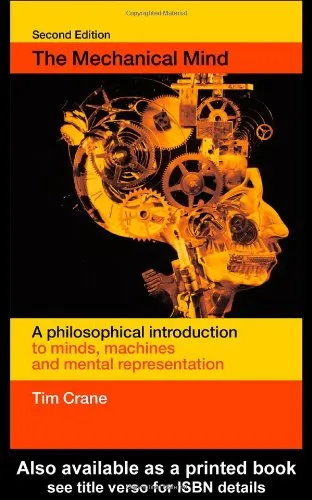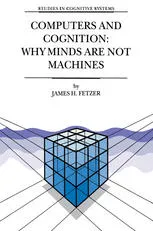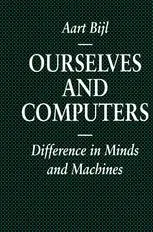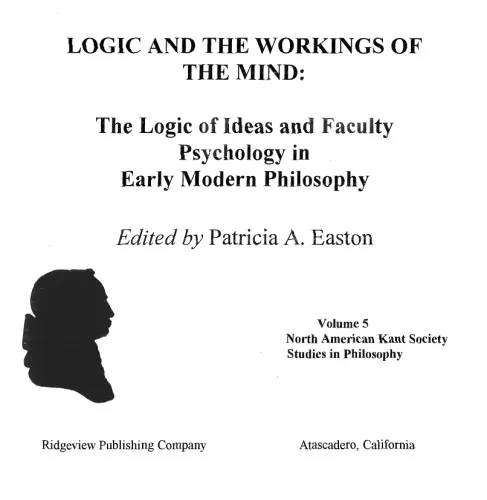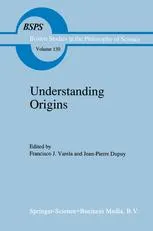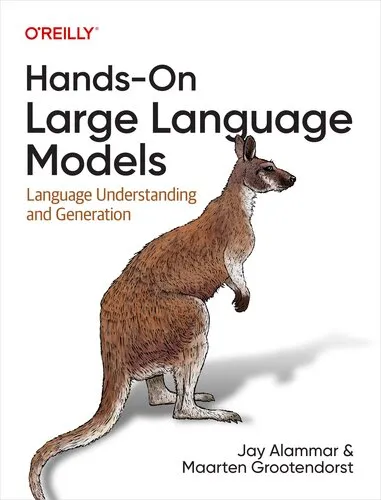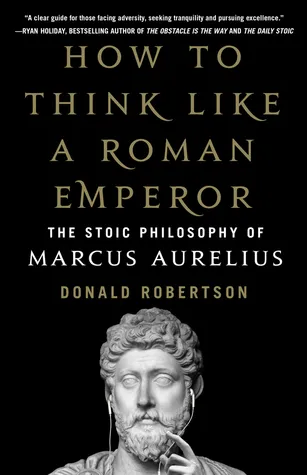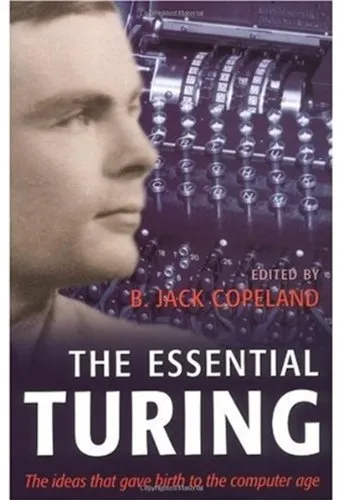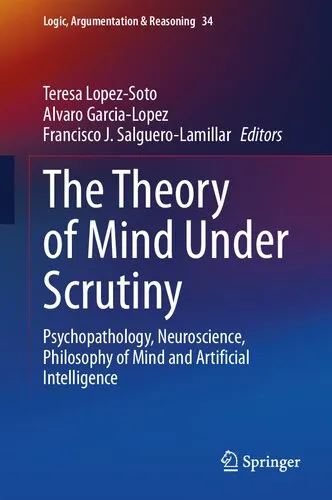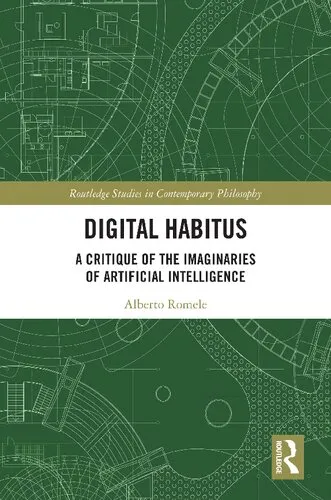The Mechanical Mind: A Philosophical Introduction to Minds, Machines and Mental Representation
3.7
بر اساس نظر کاربران

شما میتونید سوالاتتون در باره کتاب رو از هوش مصنوعیش بعد از ورود بپرسید
هر دانلود یا پرسش از هوش مصنوعی 2 امتیاز لازم دارد، برای بدست آوردن امتیاز رایگان، به صفحه ی راهنمای امتیازات سر بزنید و یک سری کار ارزشمند انجام بدینکتاب های مرتبط:
Persian Summary
معرفی کتاب 'The Mechanical Mind: A Philosophical Introduction to Minds, Machines and Mental Representation'
کتاب 'The Mechanical Mind' اثر تیم کرین یک بررسی جامع و فلسفی درباره ذهن، ماشینها و مفهوم Mental Representation است. این کتاب به طور خاص به نقش فلسفه در درک و تحلیل مسائلی چون شناخت، هوش مصنوعی و نمایهسازی ذهنی میپردازد. در دنیای امروز که ماشینها هر چه بیشتر جای خود را در زندگی روزمره ما باز کردهاند، این کتاب اهمیت و جذابیت خود را دوچندان میکند.
خلاصهای از کتاب
کتاب در چند فصل به بررسی مسائل بنیادی درباره ذهن و ادراک انسان و موجودات مکانیکی میپردازد. تیم کرین از فلسفه کلاسیک و معاصر استفاده میکند تا به تعاریفی نوین از Mental Representation دست یابد. کتاب با بررسی مفاهیم پایهای مانند تفسیر ذهنی از واقعیت، تا مباحث پیشرفتهتر در زمینه واقعیات مصنوعی در علم هوش مصنوعی، خواننده را در مسیری پرچالش اما آموزنده هدایت میکند.
تیم کرین اعتقاد دارد که برای درک عملکرد ذهن، باید به ترکیب رشتههای مختلفی چون فلسفه، روانشناسی شناختی و علوم کامپیوتر پرداخت. او با طرح سوالاتی مانند «آیا ماشینها میتوانند مثل انسانها فکر کنند؟» یا «چگونه میتوانیم ذهن را به صورت مکانیکی مدلسازی کنیم؟»، زمینۀ جذابی برای خواننده فراهم میکند تا به تفکر بپردازد.
نکات کلیدی
- تحلیل مفهوم ذهن و مقایسه آن با ماشینها و سیستمهای هوش مصنوعی.
- بررسی نحوه عملکرد Mental Representation در ذهن انسان و ماشینها.
- مطالعه ارتباط بین فلسفه کلاسیک و معاصر با علم هوش مصنوعی.
- پاسخ به پرسشهایی که نقش فلسفه را در توسعه ماشینهای هوشمند به چالش میکشد.
نقلقولهای معروف از کتاب
"درک ذهن انسان بدون در نظر گرفتن تعاملات آن با ماشینها غیرممکن است."
"ماشینها به طور ذاتی فاقد خودآگاهی هستند، اما این به معنای اینکه نتوانند ذهنی مشابه انسان داشته باشند نیست."
اهمیت این کتاب
اهمیت کتاب 'The Mechanical Mind' در ترکیب پیچیدگی و عمق مفاهیم فلسفی با پیشرفتهای علمی در زمینه هوش مصنوعی نمود پیدا میکند. این کتاب برای دانشجویان، پژوهشگران و همه کسانی که به دنبال درک بهتر از عملکرد ذهن انسان و ماشینها هستند، منبعی ارزشمند به شمار میرود. با پیچیدهتر شدن تکنولوژی و افزایش قابلیتهای ماشینها، درک مبنای فلسفی این نیروها نه تنها روشنکننده است، بلکه ضروری خواهد شد.
Welcome to a profound exploration of how our understanding of the human mind intersects with the ever-evolving world of machines. “The Mechanical Mind: A Philosophical Introduction to Minds, Machines and Mental Representation” dives into the core of philosophical thinking applied to cognitive science and artificial intelligence. In a rapidly changing technological world, this book serves as a timely, thought-provoking guide.
Detailed Summary of the Book
This book provides a foundational examination of the philosophical issues surrounding cognitive science and artificial intelligence. It begins by tracing the historical context of these fields, emphasizing key philosophical questions about what it means to think and how thinking might be replicated in machines. Throughout its chapters, the book tackles the complexities of language, representation, and consciousness, offering insights into how machines might "understand" or model these human attributes.
“The Mechanical Mind” delves into theories of mental representation, including symbolic models and connectionist approaches. It questions whether human cognitive processes can be effectively simulated by computational methods, drawing on classic philosophical problems such as the mind-body dilemma and dualism. By interlinking these philosophical inquiries with practical developments in artificial intelligence, the book sheds light on the possibilities and limitations of machine minds.
Key Takeaways
- Understanding the philosophical basis of mental representation is crucial for advancing cognitive science.
- The book examines whether machines can genuinely think or merely simulate human cognitive abilities.
- A critical analysis of symbolic versus connectionist models provides a richer comprehension of cognitive theory and its applications.
- Reflection on the ethical implications of artificial intelligence is woven throughout, urging consideration of AI’s impact on society.
Famous Quotes from the Book
Here are some reflective quotations that encapsulate key ideas from the book:
"The challenge is not just to build machines that think, but to understand what thinking itself requires."
"In exploring the mechanical mind, we are forced to question the assumptions about our own cognitive processes."
Why This Book Matters
As technology evolves and artificial intelligence becomes ever more embedded in daily life, understanding the philosophical implications is vital. This book offers significant insights to both laymen and experts interested in the intersection of cognition, technology, and ethics. It is academically rigorous yet accessible, encouraging critical thinking around the nature of intelligence, autonomy, and what it means to be human.
Furthermore, the book's relevance extends beyond academic circles; as AI systems increasingly influence diverse areas such as healthcare, law, and military operations, "The Mechanical Mind" serves as an essential resource for informed discussion on these critical societal shifts. By drawing upon philosophical, psychological, and computational intersections, the book invites readers to participate in one of the most important debates of our time regarding the future of human-machine integration.
دانلود رایگان مستقیم
شما میتونید سوالاتتون در باره کتاب رو از هوش مصنوعیش بعد از ورود بپرسید
دسترسی به کتابها از طریق پلتفرمهای قانونی و کتابخانههای عمومی نه تنها از حقوق نویسندگان و ناشران حمایت میکند، بلکه به پایداری فرهنگ کتابخوانی نیز کمک میرساند. پیش از دانلود، لحظهای به بررسی این گزینهها فکر کنید.
این کتاب رو در پلتفرم های دیگه ببینید
WorldCat به شما کمک میکنه تا کتاب ها رو در کتابخانه های سراسر دنیا پیدا کنید
امتیازها، نظرات تخصصی و صحبت ها درباره کتاب را در Goodreads ببینید
کتابهای کمیاب یا دست دوم را در AbeBooks پیدا کنید و بخرید
